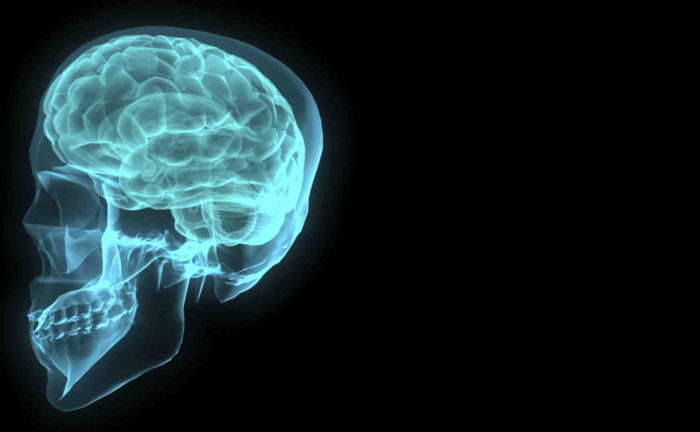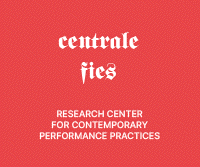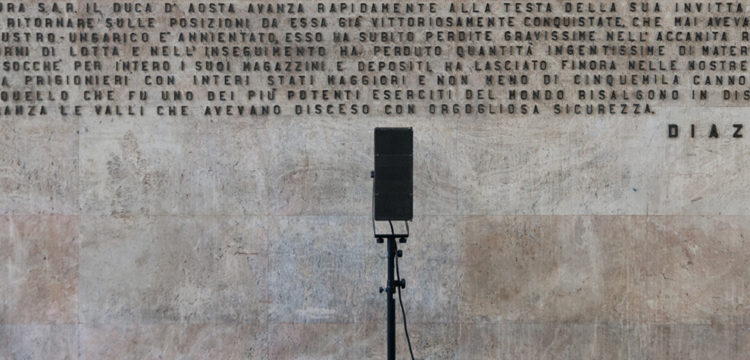Visualizing Neoliberalism
For a cartography of privileges and a visualization of exploitation
This is a theory-fiction experiment, an attempt to partially answer a series of questions related to some theological-political, psycho-political and techno-political guiding concepts and to involve altogether the potential intellect, the General Intellect, the current forms of neuro-capitalism and the coming of a technological Singularity.
“The soul is in some way all the things”
Aristotle, De anima, III, 8,431b
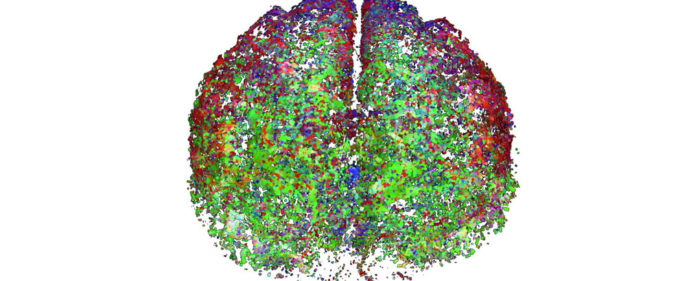
Neuroproletariat
I’d like to start from a subjective, self-ethnographic point of view: in other words, from the observation of the actual general epidemic of neurotic disorders, as reported in several articles and books published in recent years. These disorders include anxiety, depression, attention deficit, abulia, memory loss, sleep disorders; apparently, cognitive workers are most affected. I state this is a situated observation because cognitive work today clearly isn’t the leading sector of capitalist production, but rather are textiles, logistics, and “bullshit jobs” (Graeber). This clarification is necessary because, as we will see later, it’s not possible to apply a God’s Eye point of view and expect it to fit in every situation. Since capitalism operates modularly with respect to the conditions of application, starting from one’s own position is a way to avoid illusory generalizations. Further narrowing the field of observation, I’m interested in how these disorders affect cognitive workers in the cultural industry, knowing however that necro-politics, neo-slavery and neo-colonialism occurring in Africa, India and China (to name a few countries whose working conditions are known to be inhuman) are infinitely more devastating than the mild form of “Global North” neoliberalism.
In the last two decades there was a lot of discussion on the role of cognitive workers, especially with regard to the revolutionary potentials that would “naturally” characterize the members of this non-class. Reading those optimistic discourses today, one cannot fail to observe that in the meantime something has gone wrong, both on an analytical and practical level. Some analyses argue that an unexpected response from neoliberalism has occurred, a move that has displaced the point of application of capitalist command from life (biopolitics) to mind (neuropolitics). This move has been noticed by a new generation of scholars, who recently tried to describe its forms and processes. I’m thinking of the latest books by Franco Berardi “Bifo” (Heroes, Futurability), Mark Fisher’s Capitalist Realism, Catherine Malabou’s research on the connections between modes of production and psyche, and We are all very anxious by Plan C. The latest book by Jonathan Crary (24/7) and the psycho-political approach of Byung-Chul Han could also be added to the list. What these authors support is easily summarized in a sentence: we lack the psycho-physical energies to antagonistically oppose inhumane working conditions.
“Each individual member of the subordinate class is encouraged into feeling that their poverty, lack of opportunities, or unemployment, is their fault and their fault alone. Individuals will blame themselves rather than social structures, which in any case they have been induced into believing do not really exist (they are just excuses, called upon by the weak). What Smail calls ‘magical voluntarism’ – the belief that it is within every individual’s power to make themselves whatever they want to be—is the dominant ideology and unofficial religion of contemporary capitalist society, pushed by reality TV ‘experts’ and business gurus as much as by politicians. Magical voluntarism is both an effect and a cause of the currently historically low level of class consciousness. It is the flipside of depression—whose underlying conviction is that we are all uniquely responsible for our own misery and therefore deserve it” (Mark Fisher, Good for nothing)
The attack on the cognitariat’s mind takes place through a multi-damaging strategy: a. the flexibility of work has become so exaggerated it hampers the very notion of wage labour; b. the flexibility of work corresponds, in terms of sociology of emotions, to a change in the forms of human relationships and is detrimental to the managing of affections; c. at a neurological level, work flexibility corresponds to an excessive exploitation of neuroplasticity that is difficult to bearish and possibly leads to crisis in different ways depending on the subject.
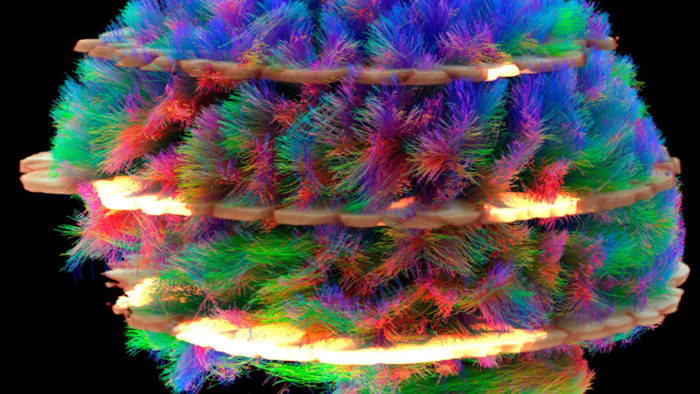
“At this point in our analysis, it’s hence necessary to make more specific distinctions. On one hand, working hours are provided by the subject that completely bypass the institution of the labour market; on the other hand, symbolic forms of remuneration, or, in other cases, expectations of financial earnings are observed. Since the worker has not legally sold his performance as a commodity, it’s difficult, at this point, to speak of both labour-power and wage-goods […] And it is exactly in these cases that the objective conditions of production expressed by social cooperation, taking place outside the traditional places of production, are potentially exploitable by the Capital.” In such a situation, there is an exponential increase of the lines of flight: from the recreational use of 24/7 available digital content (pornography, gaming, news, entertainment), to a total neoliberal reconfiguration of the subject, regardless of the personal expression of different political orientations. This transformation is shown as an increase in the level of alienation. If, for Marx, alienation caused the worker to lose him/her/themselves in the assembly line and, for Foucault, disciplinary and biopolitical apparatuses creep into subjective conduct and practices, in the current neuro-political configuration alienation creeps into the minds both of workers and the unemployed, chemically changing the neurological organization. This transformation singularizes and isolates experiences, affections, pains, pleasures. If we want to construct a new term to define this condition, we could call it “neuro-proletariat.”
“Anxiety is personalized in a number of ways—from New Right discourses blaming the poor for poverty, to contemporary therapies which treat anxiety as a neurological imbalance or a dysfunctional thinking style. A hundred varieties of ‘management’ discourse—time management, anger management, parental management, self-branding, gamification—offer anxious subjects an illusion of control in return for ever-greater conformity to the capitalist model of subjectivity. And many more discourses of scapegoating and criminalization treat precarity as a matter of personal deviance, irresponsibility, or pathological self-exclusion. Many of these discourses seek to maintain the superstructure of Fordism (nationalism, social integration) without its infrastructure (a national economy, welfare, jobs for all). Doctrines of individual responsibility are central to this backlash, reinforcing vulnerability and disposability. Then there’s the self-esteem industry, the massive outpouring of media telling people how to achieve success through positive thinking—as if the sources of anxiety and frustration are simply illusory. These are indicative of the tendency to privatize problems, both those relating to work, and those relating to psychology.” (Plan C, We are all very anxious)
The perfect visual and narrative exemplification of this form-of-life is the zombie horde, a disconnected set of individuals who form a social body without a head, united in the sharing of the same basic needs (survival), whose single minds remain yet separated. The fact that in this horde the individual intelligences are separated is an important symptom to which attention must be paid. It is the dialectic image of that surplus population in constant expansion of which Srnicek and Williams speak in the fifth chapter of Inventing the Future.
On the other side, as in the dialectical image of the sovereign/criminal, we find the narration of technologically enhanced intellects, a subsequent step in the evolution of the human species that will make minds more open and porous, collectively embedded in the construction of a single super-organism: the Singularity. Here we are dealing with a head without a body, in which the ego cogito dissolves into the ineffability of a collective trans-individual intelligence. The steps that will lead to the realization of this super-organism are now obscure, however, the obvious fact is that the materialization of technologies that can expand immensely some cognitive faculties (extended mind) has as a counterweight the neurological contraction of these same faculties, as Nicholas Carr and Manfred Spitzer pointed out.
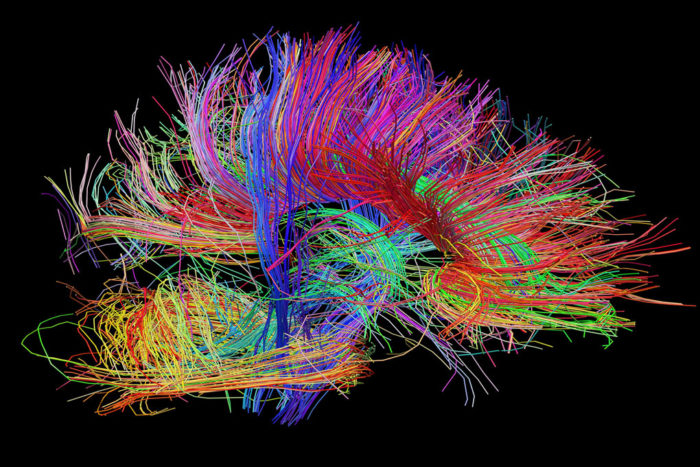
Angelology
In the history of scholastic thought, the doctrine that professed the existence of a single mind without a body has a name, it is called Averroism. Some observations by Agamben and Virno on the relationship between Marx’s General Intellect and the scholastic theory of potential intellect lead us to assimilate the fantasy of a technological singularity to a theological-political belief hence shifting from the field of angelology to the field of technological utopianism. The potential intellect (to put it simply) would constitute a part of the soul of individuals not separated from the others’. There has been much discussion about the nature of the potential intellect, above all with respect to the angelic mode of knowledge, which would not proceed by summation, but would rather be stable and eternal. If angels share the same knowledge because that very knowledge is eternal and immutable, what prevents them from sharing a single mind? “What averroism calls into question is the idea – for us taken for granted – that every knowledge and every thought has the form of an individual consciousness. And it does so not only through the exemplary figures of non-thinking – the infant, the crowd, the dormant – but above all by questioning the very condition of possibility of any tradition: the survival of thought at the death of the individual who is supposed to have produced it.”
“Only with Averroism, that is, with the thought of the one and only possible intellect common to all human beings, and crucially, with Dante’s affirmation – in De Monarchia – of the inherence of a multitude to the very power of thought […] The diffuse intellectuality I am talking about and the Marxian notion of a “general intellect” acquire their meaning within the perspective of this experience. They name the multitudo that inheres to the power of thought as such. Intellectuality and thought are not a form of life among others in which life and social production articulate themselves, but they are rather the unitary power that constitutes the multiple forms of life as form-of-life.”
“The single cherubim, while doubtless blessed with a numerical unity, seems not to be leaving behind the pre-individual being—’inferior to numerical unity’—which links it to the others of its kind. It is, to be sure, an ‘ultimate actuality,’ but—we must add—an actuality that, with a reflexive movement, in itself exhibits the potentiality-actuality relationship itself; it is, to be sure, a singularity, but a singularity that openly displays the passage from the Common to the Singular […] Both Scotus’s angels and today’s cognitive labourers—they, too, being characterized by a kind of bizarre juxtaposition of the Singular and the Common—appear illuminating for Simondon’s reflections on ‘collective individuation’. What is at stake in this? The share of pre-individual reality, which inexplicably persists with every single subject, demands a further process of individuation, which – and this is the essential – nonetheless cannot take place in interiore homine, within the mind, but only in the relation between many minds. This second individuation gives rise precisely to the collective.”
The political problem of angelology from Averroes to Aquinas and Scotus, concerns the interesting correlation with Pseudo-Dionysius’s Celestial Hierarchies. In this text, not only is the term “hierarchy” invented as a theological-political justification for the unequal nature of beings, but a militaristic model of referring to intermediate divinities is also introduced. In their ranks, angels cannot turn directly to God, but they communicate by mediating with their superior, and this superior with their superior, and so on.
“Not only is the Pseudo-Dionysius’s treatise on angels entitled Of Celestial Sacred Power (‘sacred power’ being the original meaning of the word ‘hierarchy’), but the very hierarchies of worldly power, both ecclesiastical and profane, regularly present themselves as an imitation of the angelic […] From this perspective, the distinction between angels and bureaucrats tends to become blurred. Celestial messengers are organized into offices and ministries just as worldly functionaries assume angelic qualities in their turn and, in the same way as angels, become capable of curing, enlightening, and perfecting.” (Agamben, Giorgio, “Angles”, Angelaki, 16, 2001, pp. 117-123).
A tired multitude
A dissertation on the structure of a social group, its hierarchies and the nature of political leadership is also in the famous Hardt and Negri’s Multitude, where the question of the organizational form of human communities is addressed from various points of view. How is it possible for a group to find cohesion without establishing relationships of subjugation? Moving on from the mathematics of a-centric systems to the behaviour of swarms and herds observed in ethology, the rhizomatic paradigm of the multitude stands as an antagonistic pole to the despotic and all-encompassing nature of the Empire. It is therefore no coincidence that, in the pages dedicated to the genealogy and morphology of radical antagonist groups, the image of a sentient and acephalous hyper-body is preferred to the military form of the army which, in the absence of unitary control, is completely ineffective.
It is now a question of understanding the psycho-political position of the current cognitariat, oscillating between angelic hopes of dissolution of work, universal basic income and free expression of creativity and the zombified reality of an isolating everyday life, precarious and vulnerable in every possible way (as in a Hobbesian state of nature).
Catherine Malabou, Franco “Bifo” Berardi and Mark Fisher’s idea, also present in the latest texts of Guattari (E.G. Chaosmosis), is that the class struggle has today shifted to a struggle for the governance of psychic energies. Although I have qualms about this biological turn, it is unquestionable that sociological studies linking poverty to depression, or bad working conditions and unemployment to the rise of neurosis, are very important data to be taken into account. “To ask ‘What we do with our brain?’ is above all to visualize the possibility of saying no to an afflicting economic, political and medical culture that celebrates only the triumph of flexibility, blessing obedient individuals who have no greater merit than that of knowing of to bow their heads with a smile.”
The main thesis in the two volumes of Capitalism and Schizophrenia (and in Canetti’s Crowds and Power) is that it is possible to match the pathologies of the soul to actual political models: from pre-modern animist fetishism, to the relationship between sovereignty and paranoia and finally to the relationship between capitalism and schizophrenia. Mark Fisher adds a piece to this classification, associating neoliberalism with depression. Malabou goes further and assumes that the current pathologies no longer fall within the Imaginary register (illusions, fetishisms), or Symbolic register (paranoia, obsessions), but are installed directly in the Real register, at the intersection between psychological and neurological diseases.
This homology could start a new theoretical model, more oriented towards a fruitful dialogue with the biological and neurological sciences and, most importantly, a new political plan. The scarce consideration of psychological limits of tolerance of emotional, financial and working precariousness leads to the imaginative impossibility of producing an efficient antagonistic response. A political ontology that does not take into account the ecosophic paradigm, and insists on the ontological inestinguibility of the conatus of the Multitude, is bound to misfire, being a merely theological expectation of a new Revolution.
“Contrary to the assumption of many Spinozian scholars (I’ll refer particularly to Toni Negri), potency is not infinite. In many texts, particularly in his books The Savage Anomaly and Subversive Spinoza, Negri attributes to Spinoza the idea of an infinity of potency: ‘Being does not want to be subjected to a becoming that does not possess truth. Truth is said of being, truth is revolutionary, being is already revolution’ This sentence sounds strangely theological, and Negri is, actually, adamant in reclaiming the absolute nature of world. ‘The world is absolute. We are happily overwhelmed by this plenitude, we cannot help but associate ourselves with this abundant circularity of sense and existence […] This point defines the second reason for Spinoza’s contemporaneity. He describes the world as absolute necessity, as presence of necessity’ The definition of the world as absolute necessity is the foundation of Negri’s strenuous refusal to acknowledge the limits of potency, and is also the foundation of his faith in the necessity of liberation. From an atheist point of view, I’m obliged to abandon the faith: I don’t think that liberation is necessary. Liberation is a possibility, and in our time at the beginning of the twenty-first century, it seems to be an unlikely one.”
A political ontology that contemplates the substantial fragility and limitations of individuals with respect to exploitative technologies is not simply a folk politics, it is a precise strategy of situated knowledge, a way to claim the concrete space of an effective political action.
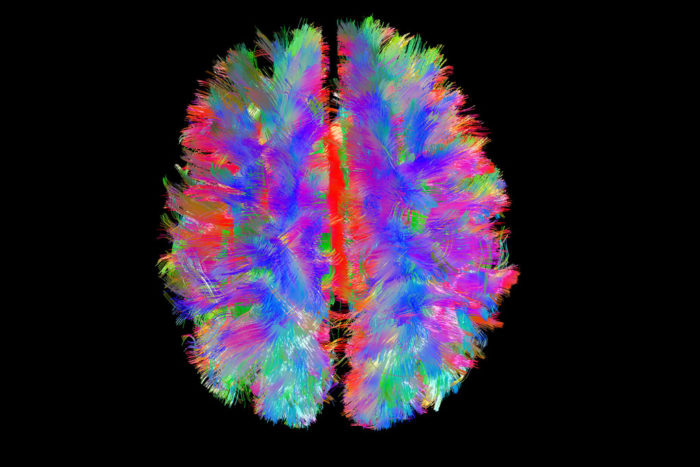
The severing
In order to understand this strategy, we must return to the problem of the singularization of the diseases mentioned above. The transformation of the Common into a Singular is a structural operation of capitalism. Marx originally describes it as a separation of the worker from the means of production and reproduction—a separation that throws him/her/them into a state of absolute vulnerability with respect to the capitalist master and forces him/her/them to reorganize his/her/their existence according to the need to survive.
“Since the process of production is also the process of the consumption of labour-power by the capitalist, the worker’s product is not only constantly converted into commodities, but also into capital, i.e. into value that sucks up the worker’s value-creating power, means of subsistence that actually purchase human beings, and means of production that employ the people who are doing the producing. Therefore the worker himself constantly produces objective wealth, in the form of capital, an alien power that dominates and exploits him; and the capitalist just as constantly produces labour-power, in the form of a subjective source of wealth which is abstract, exists merely in the physical body of the worker, and is separated from its own means of objectification and realization; in short, the capitalist produces the worker as a wage-labourer. This incessant reproduction, this perpetuation of the worker, is the absolutely necessary condition for capitalist production.”
McKenzie Wark pointed out in A Hacker Manifesto that the technological evolution generates different exploitation levels specific to each socio-technological configuration. The capital is structurally manifested in the opposition between different classes within a technological paradigm. Historically, this process manifests itself as a tendency towards abstraction (from land to workforce, from workforce to information). “The pastoralist class develops out of the productivity of private land ownership, a legal hack. The capitalist class develops out of the productivity, not just of private property, but of technical innovations in power and machinery. The vectoralist class develops out of further technical innovations in communication and control. Each in turn competes with its predecessors […] Hackers struggle to socialize a portion of the information stocks, flows and vectors on which the hack depends […] Hacking as a pure, free experimental activity must be free from any constraint that is not self-imposed. Only out of its liberty will it hack the means of producing a surplus of liberty and liberty as a surplus.”
The processes of privatization, of severing the Common, of primitive accumulation, are activities aimed at the singularization of an original collective sharing. If we go back to the averroist theory of potential intellect and to the category of General Intellect, we realize that the “personalization of anxiety” of which Plan C speaks is, in fact, the symptom of a primitive accumulation of psychic energies. The potential intellect gets fragmented into individual “egos”, in the same way that in the 14th century open fields were fenced. A genealogical reading of this process should take into account, at the same time, the genesis of the partition between Reason and Unreason during the 18th century as described by Foucault in Madness and Civilization, and the seventh section of the first book of The Capital. The singularization of the soul within the impenetrable fenced space of the ego cogito is constantly threatened by the onset of internal disorders that affect its functioning. Such a singularization, in its colonial forms, produced the “loss of the world” delusions described by Ernesto de Martino in The end of the world. It should be noted that De Martino speaks of cultural apocalypses and uses ethnopsychiatry to connect the emergence of millenarian cults and “end of the world” delusions to the socio-political situations of subalternity (whether it be Southern Italy or the South-American Millenarianism). Likewise, this privatization process is linked to the deregulation of loving affections and the regime of emotional authenticity described in Eva Illouz’s Why love hurts?. The acts of severing the common lands, the potential intellect, the emotions, are three processes of primitive accumulation of the ecosophical field aimed at separating the Common from the Individual, and producing a fragile, poor, alienated and docile subjectivity.
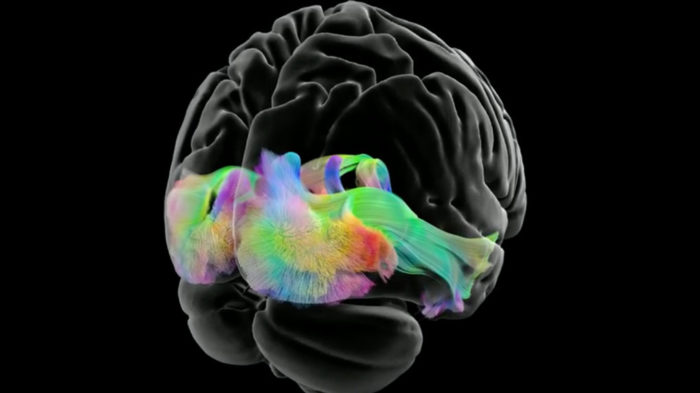
Mapping the local mind
Insisting on the surplus power of the multitude is a rhetorical and performative strategy, rather than an analytical description of the current forms of capitalism. What we need is a cognitive mapping, says Nick Srnicek: “What is needed for cognitively mapping the economy is therefore the construction of an entire sociotechnical system for observing, measuring, classifying and analyzing it. Instead of direct perception of the economy, perceiving it as a complex system is more akin to a symptomology. In the exact same way that a doctor examines a patient’s symptoms to determine the nature of their disease, so too are various economic indicators used to try and discern the underlying health of the economy. There’s the mainstream symptoms most are familiar with (things like GDP, jobs numbers, interbank interest rates, etc.) along with more arcane symptoms that its practitioners swear by (such as electricity usage, shipping costs, etc.)” (Nick Srnicek, Navigating neoliberalism)
Although, according to me, cognitive mapping should not be given in its universalist and global fashion, but in that of a local micro-cartography, a sort of map of the situated inequalities and micro-aggressions, a data visualisation of everyday life. Elsewhere I illustrated the need to apply a mapping strategy, starting from everyday conditions of existence, using recent developments in the field of anthropology and sociology (Ontological turn, Actor Network Theory). Finally, I would like to resume those speeches to advance the hypothesis of an augmented “local mind”, reformulating a concept by Italian anthropologist Franco La Cecla. The local mind is a set of traditional collective knowledge that allows the inhabitants of a place to have an affective and intellectual, narrative connection to their environment. My proposal is a mapping strategy able to outline a cartography of privileges (using an intersectional feminist strategy), i.e. a tool that makes it possible to visualize Srnicek’s indexes and symptoms of exploitation down to a local level.
Starting from the assumption that hyperobjects such as Capital, Patriarchy, Anthropocene or Distinction are not directly perceivable, noticing that disorders in cognitive mapping correspond to precarious conditions of existence and pathologies of the soul, I believe that today we need instruments not only capable of making the Capital (Buck-Morss) or the Anthropocene (Mirzoeff) visible, but also able to spot everyday forms of exploitation, especially when these are linked to the dissolution of the wage relationship. If the psychic, sociological and economic plan are part of a single continuum, although artfully separated by the neoliberal ideology, then the cognitive mapping strategy should result in a de-individualization of the pathologies, and, finally, in the increase of our possibilities to act concretely to modify the conditions of everyday existence. There are, both in the world of work and in that of academia, individual or group responsibilities, institutional or systemic, and they can be mapped. This intermediate space between “Neoliberalism” and “single individuals” is an unknown land that we wander emotionally because we are absorbed by it. On the contrary, we should be able to make epochè from our singular pathologies and identify those indices and symptoms (related to institutional groups and social relations) that currently prevent us from acting and make us vulnerable and disoriented, anxious and depressed, blind and inefficient. The political translation of these analyses should lead to a mediated and rational action allowing us to visualize and modify those social bonds (e.g. with unfair employers or toxic partners) that prevent us from living a happy life, here and now. Contrary to the future expectation of an improvement in conditions of everyday existence, to the vague aspiration of a flight to an equally unclear elsewhere, “the future is already here, it is only unequally distributed.”
The author would like to thank Riccardo Zanola for publishing a first version of this article on Gengar.land and Elena Lucietto for revising the translation.


